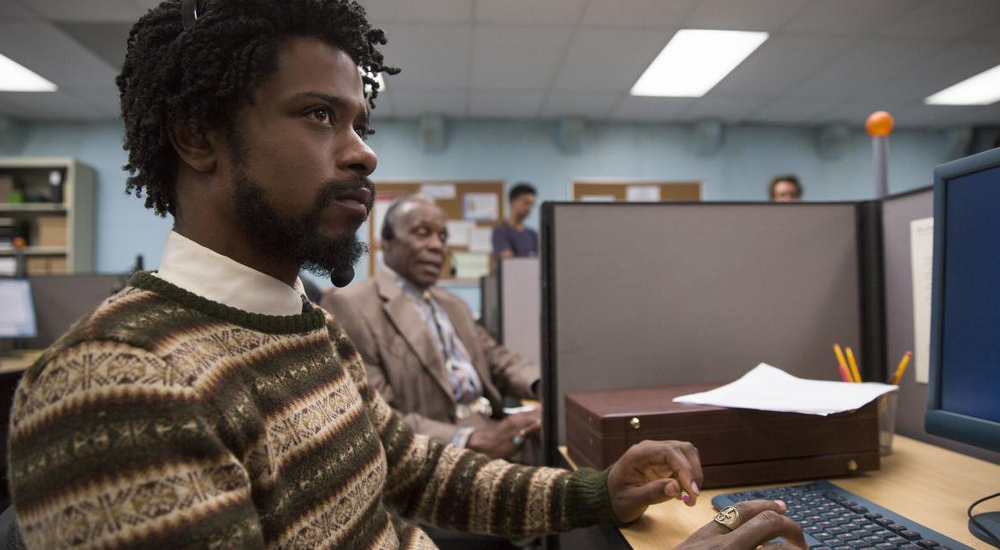America, I'm not sure you're ready for Sorry to Bother You. Wilder than even its red-band trailer could convey, the directorial debut of Oakland musician Boots Riley takes a bit from everything, including 9 to 5, Idiocracy and, uh, The Island of Dr. Moreau. But it's all presented in a way that you haven't seen before, which makes it one of the most stunning debuts of the year, even if its reach exceeds its grasp.
Lakeith Stanfield (TV's Atlanta) steps into a rare lead role as Cassius Green, a new employee at a telemarketing firm. Barely making ends meet – he lives with his girlfriend Detroit (Tessa Thompson) in the garage of his uncle (Terry Crews) – he's desperate to succeed at a job that will crush his soul, and then outright steal it. Encouraged by a co-worker (Danny Glover) to use his "white voice" (dubbed by David Cross), he rises the ranks quickly, eventually becoming a Power Caller, where he uses his talents to sell products a lot more lucrative and illegal than encyclopedias and magazines.
Sorry to Bother You has so much ambition – visually, politically and within its story – that it doesn't land every punch. It wants to be about workers' rights, the moral bankruptcy of capitalism, integrity in art and a million other things. That it pulls off most of them, while also being consistently hilarious, makes it a triumph.
A third act turn into sci-fi, which also introduces Armie Hammer cranking it up to 11 as a coke-sniffing CEO, is so audacious that you'll either go with it or abandon the interest you had in a movie that's already bonkers compared to 99 percent of the movies you've seen this year. Without spoiling anything, it makes the film's subtext literal, which actually removes some of its power.
Even if it doesn't all work, Sorry to Bother You is so blazingly original that it demands to be seen, preferably with an audience that also doesn't know what it's in for. It's a landmark debut for Boots Riley. Hopefully his next movie is just as daring, but a lot more cohesive.

